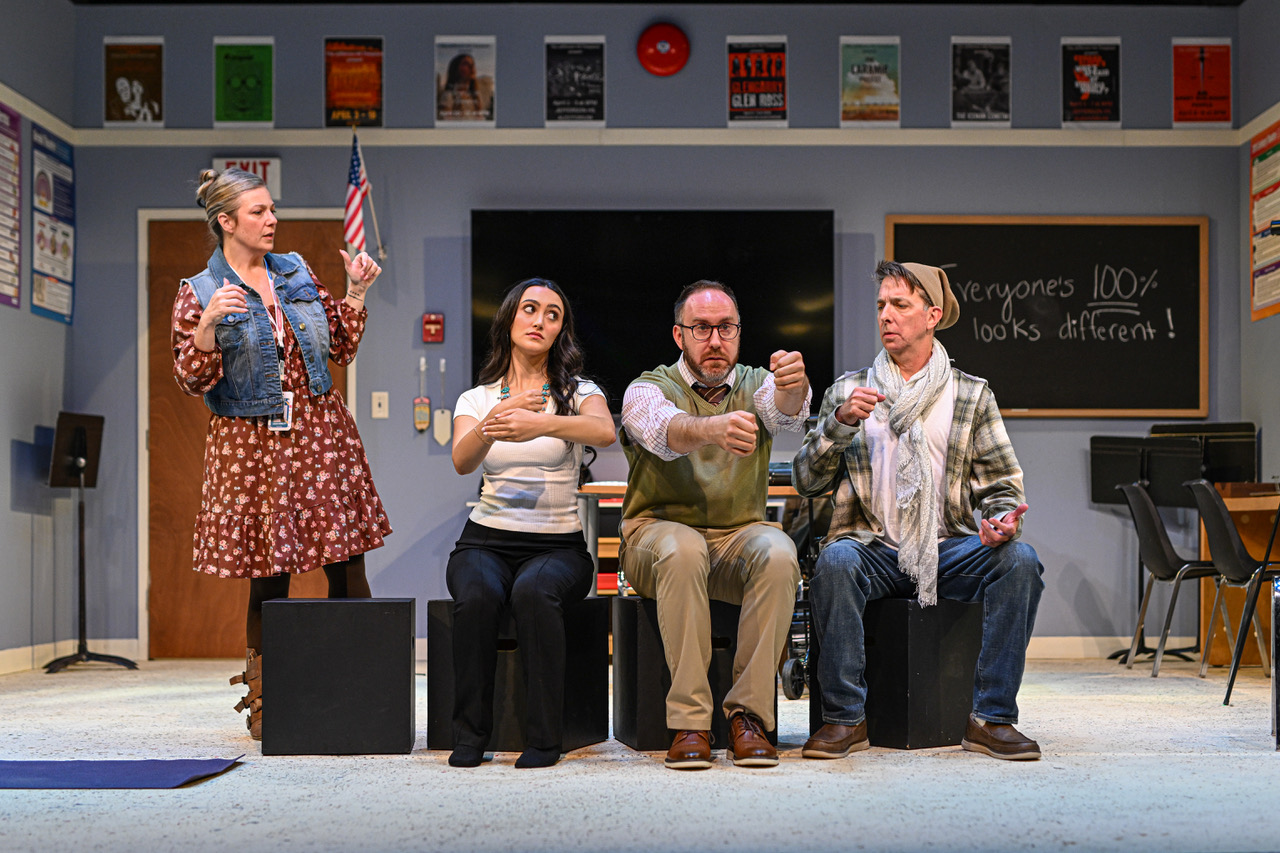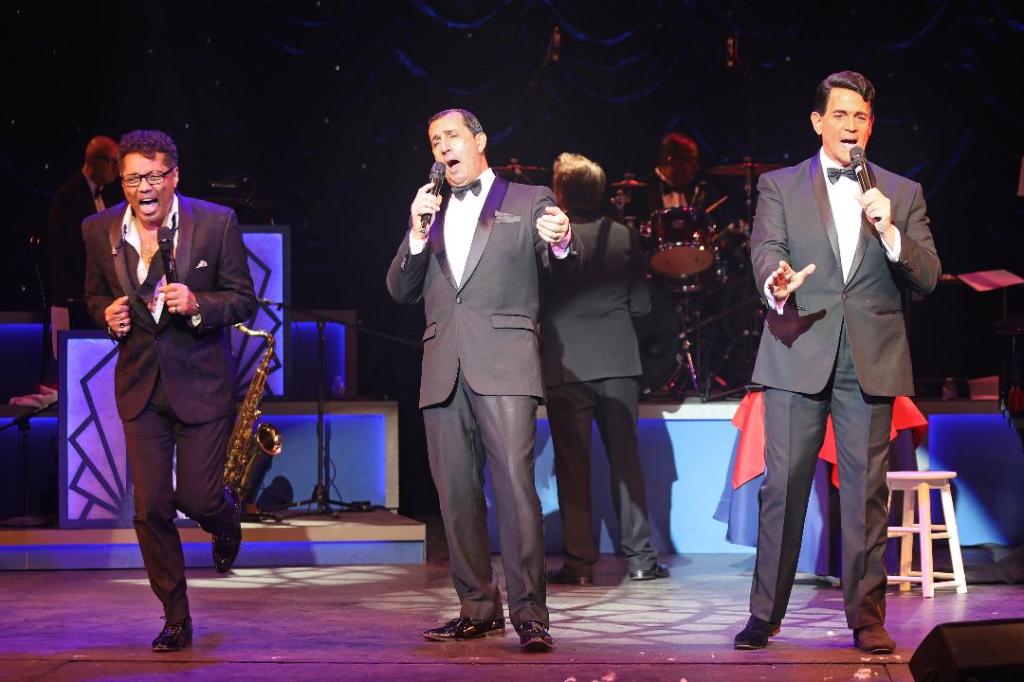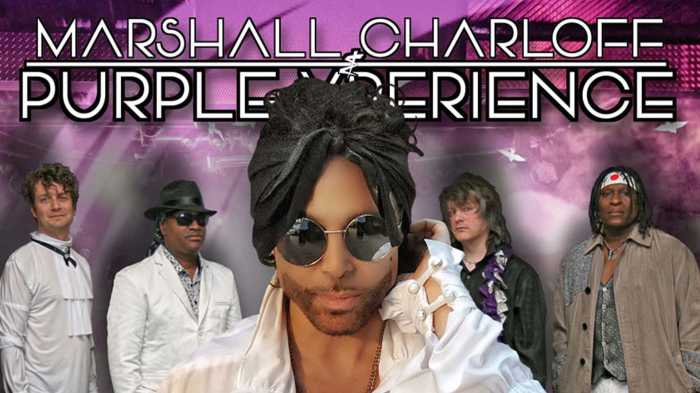Hampton Theatre Company’s 'The Thanksgiving Play' Skewers Ultra-Wokeness, Cultural Appropriation & Historical Amnesia

Not a day goes by in contemporary America without a politician, a talking head or a social media influencer accusing somebody they disagree with as being “woke.”
Wokeness has morphed into a powerful cudgel the right uses to attack the left. Meanwhile, the left hasn’t quite decided to what degree it wants to embrace the label and to what degree it wants to run away from it. At this point, the term doesn’t even have a fixed meaning, at least not one that both sides of the ideological spectrum can agree on.
Into this quagmire of American political discourse steps Hampton Theatre Company’s production of The Thanksgiving Play – and it couldn’t be more timely.
Though the term “woke” never appears in the script, there’s no question that wokeness in its myriad forms is very much on this play’s mind.
The play is about a lot of things: cultural appropriation, performative activism, historical amnesia (including the whitewashing of the origins of Thanksgiving), and of course, liberal guilt. But at its core, it’s about political correctness taken to an absurd and paralyzing extreme – which is as good a definition of wokeness as you’re likely to find.
Playwright Larissa FastHorse’s comedy was first staged in 2018 in Portland, Oregon, and later debuted at the Helen Hayes Theater on Broadway for a limited run in 2023. With that production, FastHorse, a citizen of the Sicangu Lakota Nation, became the first female Indigenous playwright to be produced on Broadway.
Ably directed by Mary Powers (who also designed the set), FastHorse’s script is trenchant, whacky and very funny in spots. The playwright is exceptionally good at ridiculing ridiculous people acting ridiculously. Part detached observer, part insider in the world she chronicles, she writes like someone who’s very much in on the joke.
Powers moves things along at an appropriately brisk clip and, along with the cast, demonstrates a particular adeptness at broad, prop-based physical comedy. (Without getting too far into spoiler territory, suffice it to say that a pair of bloody severed heads get their share of stage time.)
The ultra-woke contingent among the four-person cast is represented by Logan (Lindsey Sanchez) and Jaxton (Jason Moreland), an amateur theater couple, who are about as annoyingly and cloyingly political correct as they come.
Tasked with writing and directing a Thanksgiving production for an elementary school audience that honors the Native experience without actually including a Native person in the cast, Logan and Jaxton are beside themselves. Not only did Logan mistakenly believe she had cast a Native actress in the show, she also accepted a monetary grant that specifically stipulated that she hire a Native performer in a leading role.
Instead, she wound up with Alicia (Molly Brennan), a very caucasian and only marginally talented actress who passed for an Indigenous person by wearing braids and a turquoise necklace in one of her headshots..
Alicia has zero interest whatsoever in the political or anthropological implications of the production. A sexpot and self described simpleton, she basically wants to look fabulous, get paid and not think too much about anything at all.
And then there’s Caden (Scott Joseph Butler), a nerdy, socially awkward teacher and wannabe playwright who thinks way too much. When he’s not obsessing about how to finally get at least a portion of his historically accurate script recited on stage by real actors, he’s thinking about how to spend as much quality time as possible with the seductive Alicia.
As the team struggles to put together a show that says something about the Indigenous experience without appropriating or dishonoring anybody’s heritage or beliefs, the satire gets thicker, the action gets weirder and the production within a production implodes.
Though it explores complicated themes, FastHorse’s script is satire of the broad, absurdist kind, and it needs to be played as such. A production like this makes certain specific demands of its actors. The cast’s prime directive is to be funny without lapsing into over-the-top parody.
Mission accomplished on that score.
Lindsey Sanchez as Logan is a bit more of a subtle performer than her three co-stars. Her restraint makes sense; it serves her character well and also leaves plenty of air for Butler and Moreland, both of whom make the right choice to go a bit bigger. Sanchez isn’t a classic “straight man” exactly – and she’s certainly a talented comedic actor in her own right – but when the antics get outsized, she tends to defer to her scene partners.
As comedic archetypes (the nerdy academic who never gets the girl and the artsy ne’er-do-well, respectively), Butler and Moreland step it up and get most of the biggest laughs in the show. They seem to relish milking their respective characters’ idiosyncrasies and ridiculousness for all they’re worth.
Molly Brennan may have the toughest job of all – and she handles it well. It takes a good actor to play a bad actor. Alicia is basically an old-school bimbo with marginal talent who gets by on her physical attractiveness. She’s specifically written as a vapid human being with not much of a discernible inner life, yet Brennan manages to find something human and vulnerable in her for the audience to latch onto, particularly in her scenes with Sanchez.
Like all good satire, The Thanksgiving Play works on several levels at once. FastHorse’s script certainly skewers white privilege and smarmy virtue signalling. But it also argues, among other things, that it’s all but impossible to make a meaningful piece of art – even for an elementary school audience – if the artists are afraid to offend anyone.
This production is the first installment of the Hampton Theatre Company’s new Jane Stanton Celebrating Women in Theatre Project. The Company points out that although it has featured works by female playwrights in the past, its last three seasons did not include any shows written by a woman.
Named after the Company’s first resident director and sponsored by a grant from an anonymous private donor, the initiative includes a three-season commitment to staging plays written and directed by women at the start of three successive seasons.
The Thanksgiving Play opened on October 16 and runs through November 2 at Quogue Community Hall. Tickets are available at hamptontheatre.org.









